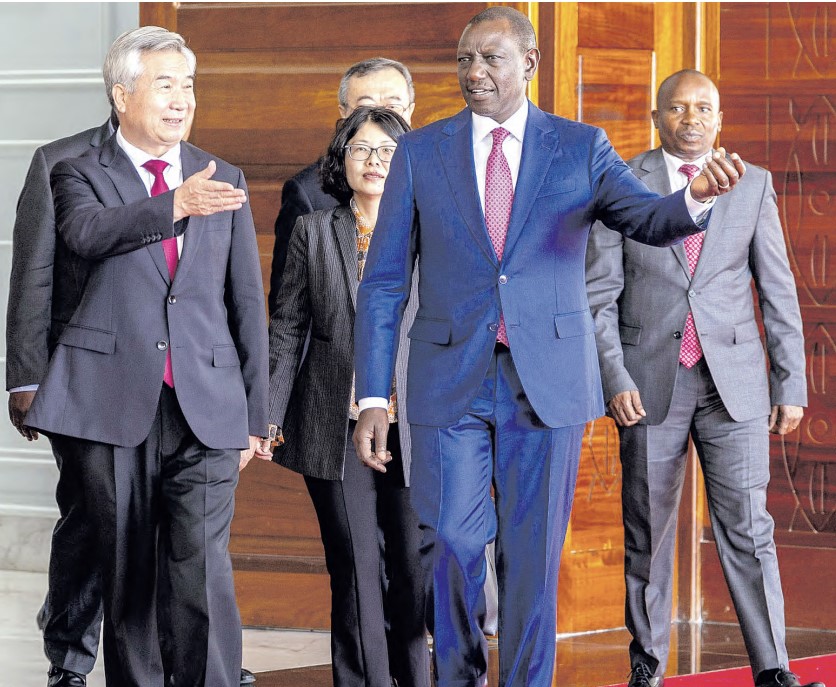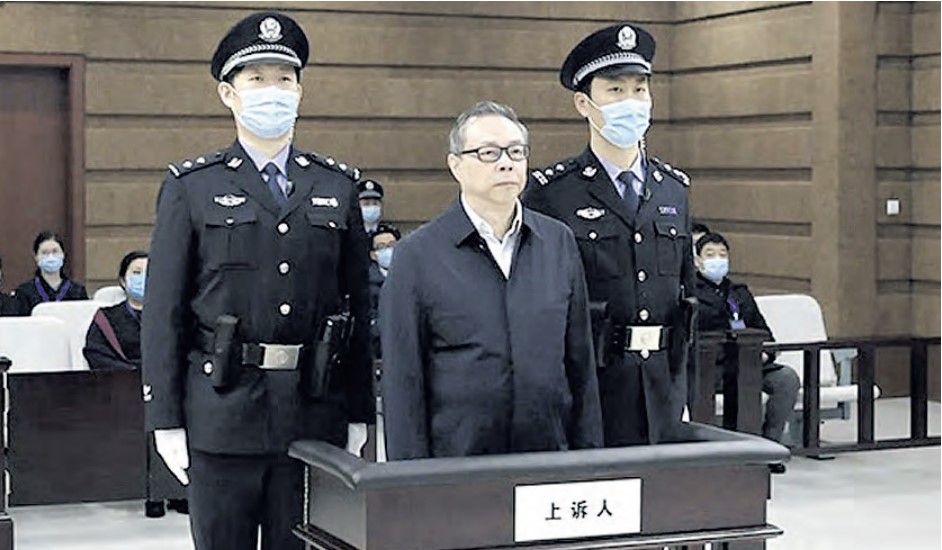

Towards the end of November, Chinese authorities sentenced a former bank chairman to death, at least if he commits any further crime in the next two years
The state official was found guilty of accepting more than Sh2 billion in bribes, abusing his position and issuing illegal loans.
Even if he survives death row, the official will spend his life in prison, in the latest display of the seriousness with which China is taking its war on graft.
The 2021 execution of Lai Xiaomin for receiving bribes, among other violations, is the severest on record.
Several officials face charges in many prosecutorial courts in the Asian powerhouse, with the anti-graft agency saying it would be more thorough.
The Central Commission for Discipline Inspection (CCDI) and National Supervisory Commission monitor how state officials behave.
The agency, which is an appendage of the Communist Party of China (CPC), checks “events that may affect the official’s impartial performance”.
Officials are also pinned down for “repeatedly accepting gifts and consumption cards from private business owners.”
Those whom investigations establish have a case to answer are expelled from CPC and their retirement benefits adjusted to their detriment.
Kenya is among African nations that have had the honour to learn from the man in charge of the CCDI himself.
Li Xi, secretary of the CPC Commission for Discipline Inspection, was in Nairobi early November and held talks with President William Ruto.
He said China was “looking forward to strengthening communication and coordination with Kenya on issues like the reform of institutions”.

FACING THE MUSIC
China recently repurposed its war on graft, ostensibly after dropping three points in the latest Transparency International [2023] ranking.
Its anti-graft campaign now strongly targets Chinese universities as well as financial sector institutions.
In its wake, a deputy director of a state agency was recently sent packing for drinking expensive liquor at a banquet hosted by a businessman.
“During the banquet, he violated regulations and drank high-end liquor, such as Moutai,” anti-graft czar CCDI said in a report on its website.
An environmental construction management supervisor also went home for allegedly accepting banquets from private business owners.
Gifts, cash and shopping cards received through express delivery caused the officer dismissal from public office in July.
Another official who repeatedly accepted high-end liquor, seafood and other gifts from private business owners was also removed from office.
The same was the case of a former party secretary who accepted gifts and bribes to pay for personal meals and banquets for others.
For four years, the report says the official used items seized in anti-graft operations to pay for personal meals and banquets for others.
Following the ‘serious violations of discipline and law”, the official was expelled from the party this month. Those implicated also face prosecution.

KENYAN CASE
The reports paint a contrast to Kenyan authorities’ struggle to nail graft suspects and eradicate conflict of interest in public service.
Ruto, during his State of the Nation address last month, lamented about hurdles in his anti-corruption war.
He accused MPs of delaying the very tool he needs to tame the vice in the approval stages of Parliament: Conflict of Interest Bill, 2023.
The head of state accused the institutions charged with combating corruption, promoting efficiency and integrity of lethargy.
“They should stop hiding behind the transparent screen and rise up to meet the people’s expectations on matters integrity,” he said.
The President chided the Office of Director of Public Prosecutions for dropping cases aimlessly, as well as the courts for delaying graft cases unnecessarily.
A tough-talking Ruto said the fight against graft would be his new resolve going forward, putting the concerned agencies on the spot.
Kenya’s graft cases are handled by the Ethics and Anti-Corruption Commission, the Office of the DPP and the police.
Various anti-graft lobbyists, however, are pessimistic the country’s regimes will ever take down graft lords.
Transparency International–Kenya says the Kenya Kwanza administration, for instance, is still scratching the surface on the graft war.
“They must move beyond surface-level optics and take concrete, actionable steps to address corruption, enforce accountability and uphold human rights,” TI-Kenya boss Sheilla Masinde said.
The National Integrity Alliance, a lobby of anti-graft agitators, also downplayed the current regime’s commitment to eradicating graft.
“The government is yet to outline actionable steps to address the root causes of corruption,” they said in a press statement. The group comprises TI-Kenya, Inuka Kenya and the Kenya Human Rights Commission.
They cited the appointment of persons facing corruption allegations into state jobs after “aided acquittals”.
Ruto faced criticism from the onset of his administration for hiring persons facing graft allegations.
Several high-profile cases have also been dropped in his wake, events the agitators described as “stinking to the high heavens”.
“Can the President rescind appointments of some of those still in office?” Masinde asked.
Reports implicating officers, including for receiving alcoholic gifts, rarely get acted upon.
Despite watchdog reports citing procurement as the main avenue for corruption in government, no sanctions have followed.
Cases of inflated costs of projects, supplier horse-trading and kickbacks mostly go cold, leaving Kenyans with no tangible answers.
A recent EACC report singled out ministries with high graft prevalence.
For Law Society of Kenya boss Faith Odhiambo, “EACC is the weak link in the fight against corruption”.
Kenya and China, whose relations stretch more than 60 years, are reportedly working on joint efforts to fight corruption.
Chinese anti-graft crusaders believe it is necessary to investigate corruption by work styles and for the concerned authorities to dig deep into corruption networks.
BEIJING'S STYLE
China has discipline inspection and supervision agencies at all levels of governance, from the villages to the national level.
The ubiquitous officers usually identify unhealthy work styles in their regions, units and fields.
They review events that are most likely to evolve into corruption, investigate and act on them as soon as they are discovered. Culprits are expelled.
Gifts, shopping cards and gas cards handed in violation of regulations have also felled top government operatives.
An official who “took advantage of traditional festivals to accept shopping cards, gas cards and high-end liquor from those he managed and served” was recently expelled.
A court official also went home for “repeatedly accepting cash gifts, shopping cards, red wine, tea and other gifts from others”.
The anti-graft commission says the actions of the officers “affect the impartial performance of official duties”.
A court official was punished for “taking the opportunity of his son's wedding to accept gifts”.
A director of a transportation bureau also fell on the axe for repeatedly accepting high-end cigarettes from subordinate units.
After the commission establishes an allegation, they refer the matters to the prosecution team for handling.
Diversion of fuel cards, borrowing government vehicles and failing to return high-end watches and jewellery land some Chinese officials in trouble oftentimes.
Others have also been reprimanded for “wasteful expenditures that end up increasing the burden on nationals at the grassroots”.
China’s anti-graft agency punished nearly 600,000 people in the first nine months of this year on charges of offering or accepting bribes.
Of these, 53 were at the level of minister, while more than 2,900 cases were transferred to prosecutors for further investigation.
A university vice president, the latest to be expelled, was found to be doing business illegally and violating the requirements of clean politics.
China also encourages agencies to plug loopholes in the system that are exposed by the cases.













